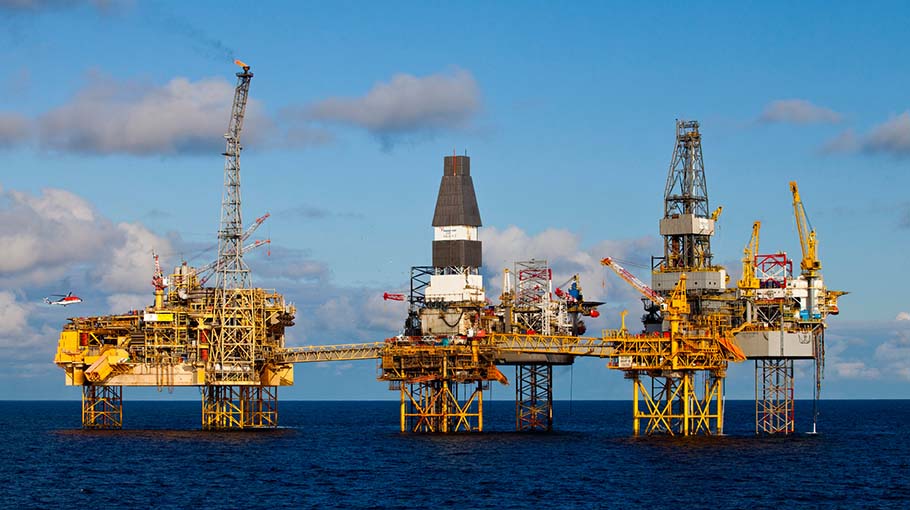Energy sector needs pragmatic steps

Energy crisis is gripping the country as at least four major flaws have been identified in the sector.
According to energy experts, the first of the flaws is buying more gas from the spot market without a long-term agreement with any country. Secondly, to keep gas exploration in the country almost closed, third reason is to allow business to operate under a single entity and fourth reason is slow progress in renewable energy.
Experts say the country should give priority to domestic oil and gas exploration to lessen the dependence on import, but the issue has long been neglected.
Production from the country's gas fields has been declining for several years. The daily demand for gas in the country is 420 crore cubic feet while the supply is 300 crore cubic feet per day. Of this, the government imported 100 crore cubic feet of LNG, which has led to a massive rise in subsidy in the gas sector.
According to the Energy Division, if no large gas field is discovered, daily production could be reduced by 43.5 million cubic feet in the year 2023-2024. Even then, there is no emphasis on oil and gas exploration.
As an alternative, the government has taken steps to increase import of costly LNG. Gas exploration funds have been spent on LNG imports. In the last one year, Tk 9,000 crore has been taken for LNG import from this fund.
State Minister for Power, Energy and Mineral Resources Nasrul Hamid said, "The government is doing everything possible to ensure energy security. We are working to further consolidate energy security in future. "
Petrobangla says 73 percent of the total gas supplied this year will come from domestic gas fields. To this end Petrobangla will have to spend around taka 5572 crore. The remaining 27 percent of gas will come from imports and its cost will be taka 44265 crore.
Bangladesh had signed two long-term agreements on liquefied natural gas (LNG) imports. After that the demand for imports increased but the government could not sign a new long term agreement. As a result, compensation has to be paid since last year, because, meanwhile, the price of LNG in the spot market has increased five times last year. Last year, 20 percent of the imported LNG came from the spot market. The government has a plan to import around 50 percent of LNG from spot market this year. However, LNG prices are likely to rise in the next two years. So, Bangladesh will have to import LNG at a higher price. As a result, government subsidies will increase along with hike in gas prices at the consumer level.
Petrobangla has set a target of importing 85 crore cubic feet of gas per day this year. Currently, the price of LNG per unit in the spot market is more than $30. On the other hand, under the long-term agreement, LNG is now being imported from Qatar at $10.7 and from Oman at $10.2.
Bangladesh is importing LNG from Qatar Gas and Oman Trading International under a long-term agreement. The first LNG cargo in the country arrived from Qatar in April 2018. Then 63 cargoes came from these two countries in 2019, 66 in 2020 and 75 in last year. Apart from this, 16 cargoes have been imported from the spot market last year.
Petrobangla last year sent a letter to Qatar and Oman requesting them to increase supplies of LNG. However, it didn't work. Instead, Oman said it would reduce supplies.
Petrobangla officials said that the supply of LNG was offered under a long-term contract two years ago. However, it could not be done. On the contrary the RPGCL cannot buy LNG from the spot market at an instant price even if it wants to, because of the longer government approval process. So, the foreign company wants the price by estimating the price two weeks later, which is also high.
According to Petrobangla, the cost of gas produced by domestic company is taka 1.27 per unit. And the cost of gas produced from domestic gas field through foreign companies is taka 2.91 per unit. On the other hand, the LNG price will reach Taka 50.39 this year. So, it would need Tk 44,265 crore to import LNG this year.
Terming the purchase of a huge quantity of LNG from the spot market ‘a wrong decision’, energy experts say a maximum of 10 per cent LNG should be purchased from the spot market and the rest 90 per cent should be procured through long-term agreements with multiple countries.
Professor M Shamsul Alam, Energy Advisor of the Consumers Association of Bangladesh (CAB), said, "LNG imports have been made compulsory to provide special facility to some groups by creating a gas crisis.”
The 1995 Energy Policy laid emphasis on the drilling of four exploration wells a year.
Only 40 exploration wells have been drilled in the country since independence while Tripura has drilled 160 wells in its small area and discovered 11 gas fields. The first well was dug in Bangladesh land in 1910 and a total of 28 gas fields have been discovered by digging 95 wells since then.
The exploration of gas and oil from the maritime area that Bangladesh won from Myanmar and India through the verdicts of the UN Maritime Tribunal has also made no progress.
Bangladesh won 111,000 square kilometres from Myanmar and 19,467 square kilometres from India through the verdicts in 2012 and 2014 respectively.
The two neighbours have already begun exploration and extraction of natural gas and oil in their territorial waters.
Energy expert, Professore Badrul Imam told Bangladesh Post power sector is one of the key factors in the success of the present government. But reliance on more expensive fuels has increased. As a result, electricity and fuel prices have risen.
He said the country's energy sector is being more dependent on imports. This situation has been created due to lack of proper planning, bureaucratic complexity and protection of the interests of some beneficiaries. If this continues, more than 90 percent of Bangladesh's energy sector will be import dependent in future. The added pressure on the national economy is undoubtedly a matter of concern.
Badrul also said gas production in the country has been declining since 2000. But in the last 20 years, there has been no success in the exploration activities. So, energy exploration activities inside the country should be increased to overcome the crisis. Otherwise, the crisis in the energy sector will intensify.
‘In order to attract international oil companies to exploration for gas at sea, it is necessary to create a seismic survey and data package with the help of international specialized service companies, known as Multi Client Survey. Petrobangla took the initiative to do so in 2014, but could not do it in seven years due to bureaucratic complications,’ he said.




